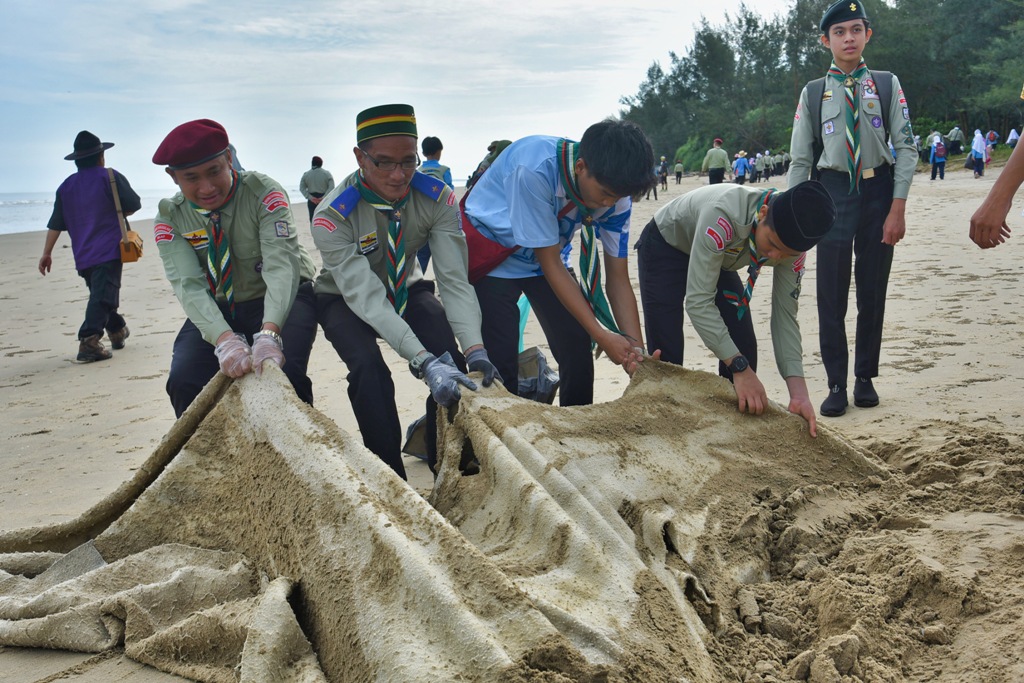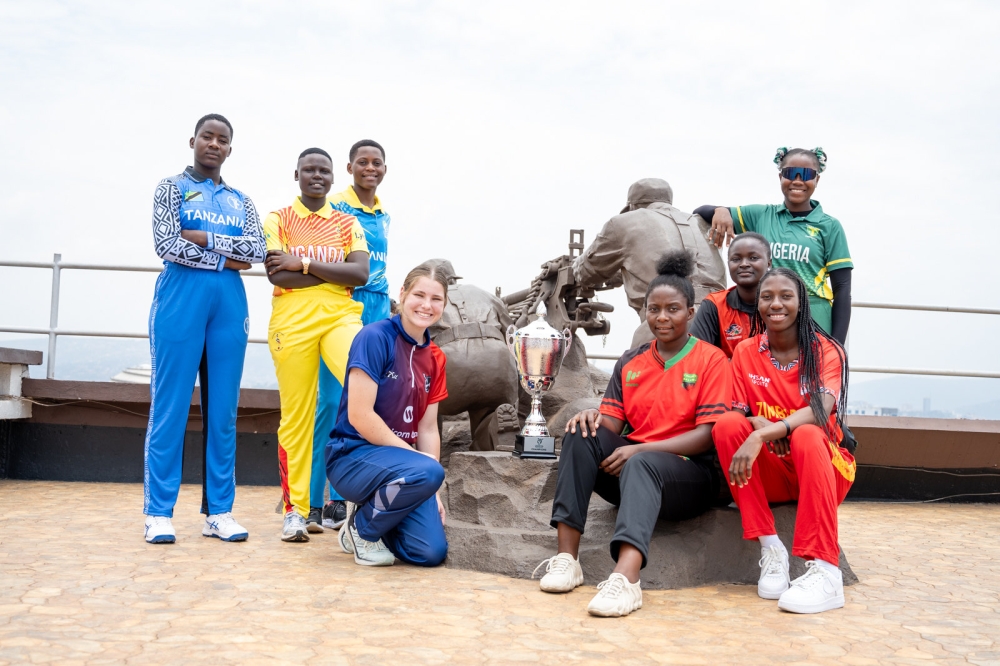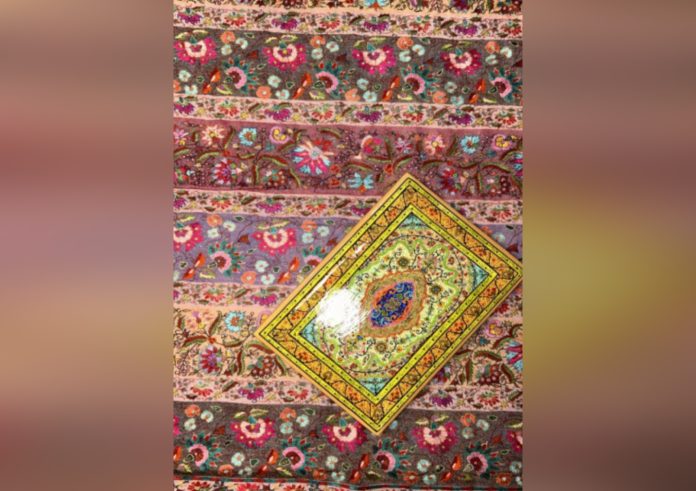Last Sunday I wrote about Leonard Woolf and quoted from his second autobiographical volume Growing which covers the period 1904 to 1911, which he spent as a civil servant in Ceylon. My article was about the start of his administrative career in the colony Ceylon, serving in Jaffna as Cadet and promoted soon enough to the higher grade of Assistant Government Agent. Today I touch on Woolf’s service and attitude to the people he either socialized with or served as British administrator in Kandy (1907– 1908) and then Hambantota (August 28, 1908 to May 20, 1911).
Kandy About transferring from the Jaffna train to one travelling to Kandy in Polgahawela (“what a soft liquid gentle Sinhalese word”) he remarks: “I remember after 53 years as vividly as if they happened 53 minutes ago...

I had left behind me the bareness, austerity, burning dryness of the sands of Jaffna and now I was bathed, embraced by the soft, warm, damp, luscious luxuriance of the tropics. Here life was full of trees..
. ferns and flowers.” Settled in Kandy in his Office Assistant’s bungalow above the Lake behind the Maligawa, he wrote half a century later: “I am glad that I spent a year of my life at the age of 27 in Kandy, for a life there was different to any other that I have ever known elsewhere, but I did not like it the way I liked Jaffna and Hambantota.
” Why we ask. Because Kandy was “Europeonized. Full of white men.
.. planters and because it was a beauty spot accessible from Colombo and its harbour, so there was always an air about Kandy of European cosmopolitanism and ‘society’ with perpetual streams of travellers ‘passengers’ staying in the Queen’s Hotel.
” About Kandy he writes he was neck deep in work, but dealing with the administrators and planters and Crown land matters and plantation labour was boring, “On the other hand everything to do with the Sinhalese seemed enchanting. The Kandyans fifty years ago, the Ratemahatmayas, the feudal chiefs and headmen, and the villagers were generally, and often individually, the most charming people I have ever come across. They were typically mountain people, independent, fine mannered, lively, laughing in their enchanting villages, isolated, unchanged and unchanging.
It was extraordinary to deal with them after the rather dour Tamil of Jaffna living behind his cadjan fence under the remorseless sun in the unending plain.” Woolf touches on every aspect of life in Kandy at that time: socializing with the British, which he did not like; observing the locals and approving of them. He writes about the Tooth Relic, schools and churches and Kandyan Marriage and Divorce Law.
“Another thing I liked about the Sinhalese was their religion.” He admits he was irreligious “but if one must have a religion, Buddhism seems to be superior to all other religions..
. The way of life as preached by Gautama Buddha is extraordinarily gentle, unaggressive, humane ..
. I think this gentleness and humanity somehow or other filters down even through debased Buddhism into the minds and everyday lives of the most ignorant villagers.” Noted by me was that even then Buddhism was ‘debased’, probably by some who preached and practiced variant forms, as it is evident now.
Hambantota It is obvious by what Woolf writes and even implies in his autobiography of his time in Ceylon, that he was most at ease, comfortable, and interested when with the ordinary Ceylonese people – fishers, farmers, even jungle dwellers. He was humane, truly loved and understood them, more so during his four years as AGA in the Hambantota District stretching from Tangalla to Kumana. His promotion as AGA Hambantota District was a quick elevation given him by Governor Sir Hugh Clifford, in appreciation of his arranging an excellent stay in Kandy with a special exposition of the Tooth Relic and Perahera for the visiting Empress Eugenie of France (aged 81) and her entourage.
Woolf does not expand on who she was. I googled. She was Spanish and Empress from her marriage to Napoleon III from 1853 until the Emperor was overthrown in 1870.
His preference for forested Hambantota is evident: his first novel is set in a village in the jungle of the District with Silindu, Babun, Vedarala, crafty trader Fernando and Headman being typical characters of this southern section of the country. He treats them sympathetically and is not judgmental even about Silindu who others considered half mad. Two very obvious characteristics of Woolf are evident throughout his memoir – love of solitude and dedication to work as a civil servant.
On the third page of the section titled Hambantota he writes: “I work, God, how I work. I have reduced it to a method and exalted it to a mania.” He got others to work too, creating efficiency and responsibility.
Solitude being always preferred by him to society is proven by his love for the forests; his spending time wandering in lonely spots and even in the jungles of Hambantota. “In the main my obsession with work was stimulated by two things, I fell in love with the country, the people, and the way of life which were entirely different from everything in London and Cambridge. I did not idealize or romanticize the people or the country; I just liked them aesthetically and humanly and socially.
” But he admits “I was ruthless – too ruthless – both to them and to myself.” Here he means the drive to work and efficiency. Events/Occurrences Woolf details important happenings in each province or district he served in.
He had to supervise the pearl fisheries while in Jaffna. He describes them in Marichchukaddi, Mannar, when around 4,000 Arabs came in their dhows to augment an equal number of local and Indian Tamil and Moor divers, traders and hangers on. In Kandy the Perahera is detailed but one duty that he had to perform sticks out for its ghastliness and the detestation he felt.
It was supervising early morning hangings of criminals in the Bogambara Prison. This sentence is significant: “I give these repulsive details because those who support capital punishment in the 20 th century pretend that it is a necessary, humane, civilized form of punishment..
. it is disgustingly inefficient. All the evidence in all countries and at all times, goes to show that capital punishment is not a deterrent of crime; in fact the mystique of horror it creates tends to induce pathological or weak minded people to imitate the crimes.
” While in Hambantota he was called upon to supervise the Kataragama Festival. He details much of it: customs, rituals, beliefs and even the rivalry that existed between the Hindu and Sinhala Buddhist attendees to the God in the devale. He also had to accommodate visiting hunters from Colombo and even foreigners.
He loved the jungle and took to hunting. Women Woolf describes many so precisely that one almost sees the character alive – memsahibs, white missionaries and a few others. He was absolutely no skirt looker, leave aside skirt chaser.
He lost his virginity in Jaffna to a Burgher girl whose brother acted as messenger; she being notorious. In Kandy to help a friend who was interested in one of the daughters of a planter – Robinson – he agreed to go riding as a foursome and thus got very friendly with Rachel. But no romance though she seemed to have fallen for him.
“I have always been greatly attracted by the undiluted female mind, as well as by the female body. I’m thinking of the ‘ordinary woman’.” “As for Rachel, I liked her very much and reached the maximum of intimacy with her allowed by the extraordinary etiquette and reticence of that age.
” In Hambantota, except for a couple of visiting white women and a resident white missionary he knew in Jaffna now married and living in Tangalla, he had no contact at all with women. Disillusionment His dissatisfaction with imperialism and the manner of British government in Ceylon began very early in his career. Writing of his time in Jaffna he says “There was a great deal to be said against our rule of Ceylon, which of course was bleak ‘imperialism’ or what is now fashionably called colonialism.
” He saw more and more greys in how the Brit Admin functioned. On a year’s furlough back home, having travelled with his sister Bella who holidayed with him in Kandy and married the Assistant Director of the Peradeniya Gardens, he felt unsettled and was undecided. He had fallen in love with Virginia Stephens.
Thus he applied for an extension of leave for personal reasons. He was asked to divulge them to the Under Secretary of State in Downing Street. He did not do so and thus his employment in the Ceylon Civil Service was terminated by asking for his resignation on May 7, 1912.
Thus ends this marvelously written memoir of Leonard Woolf’s time in Ceylon, critiqued thus in the back cover blurb of the book: “seemingly effortless way with words which is beautiful and spellbinding...
It is in this volume that Mr Woolf’s engaging literary skills are most prominently displayed.”.



















